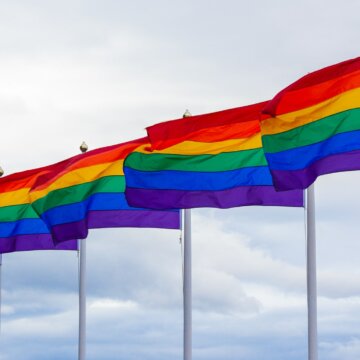- About
- Topics
- Picks
- Audio
- Story
- In-Depth
- Opinion
- News
- Donate
- Signup for our newsletterOur Editors' Best Picks.Send
Read, Debate: Engage.
| topic: | LGBT Rights |
|---|---|
| located: | France, Germany, Austria, Belgium, Norway, Iceland, Denmark, Portugal |
| editor: | Abby Klinkenberg |
Norway is the latest European country to linguistically recognise non-binary gender identity: on 31 January, 2022, the Language Council of Norway confirmed that a non-binary singular third-person pronoun would be added to dictionaries later this year. Citing the fact that the use of “hen” as an alternative to the masculine “han” and the feminine “hun” has stabilised in spoken Norwegian, this gender-neutral pronoun is on its way to official recognition. Naturally, this development has been met with opposition from right-wing political parties in the country.
A few months ago, in November 2021, a similar situation set off some linguistic fireworks in France. The online edition of the Le Petit Robert French-language dictionary added the non-binary pronoun “iel” - an amalgamation of the masculine “il” and the feminine “elle” - inciting a veritable uproar in the process. France has a vibrant and fastidious history of defending its culture from “outside influences” and gender-neutral language is the latest domain to inspire attacks in the name of cultural preservation. French Minister of Education Jean-Michel Blanquer slanderingly declared that the addition of “iel” amounted to “US-inspired wokeism.”
In 2017, the Academie Française declared that gender neutral language would create a “disunified language, with disparate expression, that can create confusion verging on illegibility.” Five years later, this official sentiment does not seem to have changed much: Blanquer explicitly stated that “inclusive writing is not the future of the French language,” speaking out against Le Petit Robert’s cultural incursion.
Such expressions against the recognition of gender-neutral language are uttered from a position of cis-normative entitlement. For individuals who do not feel at home in either masculine or feminine pronouns, such statements amount to a denial of their existential validity. Last year, Ipsos’ LGBT+ Pride 2021 Global Survey indicated that 4 percent of Gen Z (individuals born after 1997) do not identify as cis-gendered - four times higher than individuals over 40 years of age.
People are becoming more comfortable with identifying their gender in non-binary terms - whether official dictionaries or ivory tower linguistic committees deign to include non-binary pronouns in the holy domain of national legitimacy is, in some ways, besides the point. Non-binary people will continue to exist and pronouns will continue to shift in everyday speech in order to accommodate non-binary identities. Linguistic recognition is only one cultural step on the way towards legal recognition of the non-binary gender identity - and legal recognition itself is only one step on the way towards full equality.
In Europe, the legal pursuit of non-binary gender equality and inclusion has been piecemeal, operating on the level of states themselves rather than by virtue of an EU-wide policy or directive. Currently, the voluntary opt-in for non-binary or third gender legal identification is only active in Iceland, Denmark, Portugal and Malta. While Germany and Austria provide a third “diverse” gender option, it is only technically available to intersex people who can provide a medical certificate. While some states like Belgium and the Netherlands are moving forward with plans to make gender markers less operationally central to legal documents like ID cards, no other European countries have pursued legal recognition for non-binary gender identities as of yet.
In this context where the recognition of non-binary gender identities remains unexplored, linguistic strides like those being made in Norway and France are especially significant. While pursuits of recognition are often attacked as “distractions” from the material reality of social inequalities, the influence of increased visibility and mainstream cultural inclusion on advancing minority rights cannot be underestimated.
Photo by Jasmin Sessler

